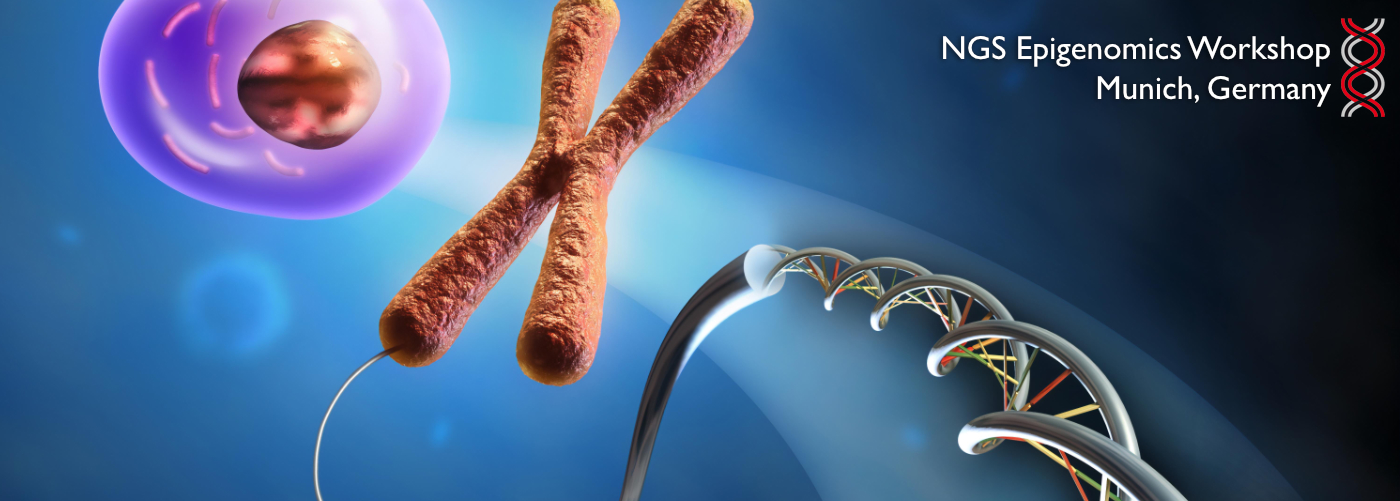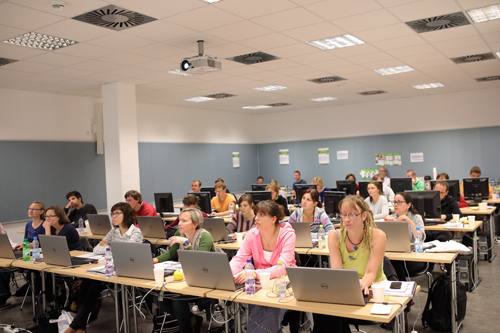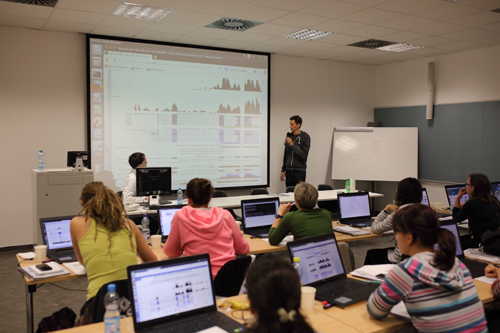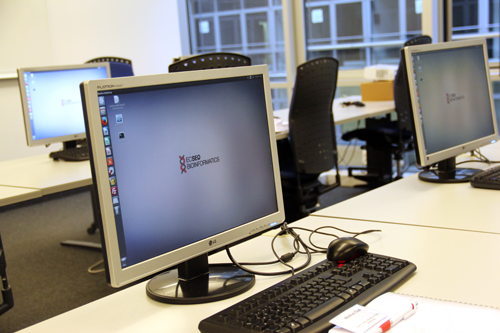NGS Epigenomics Workshop
Exploring DNA Methylation and Chromatin Landscapes with Next-Generation Sequencing Data

Unlock new insights into DNA methylation and chromatin landscapes with the application of bioinformatic tools for analyzing next-generation sequencing data.
In a nutshell
- Learn the essential computing skills for NGS bioinformatics
- Understand the basis for bisulfite-seq, ChIP-seq and ATAC-seq techniques
- Use bioinformatics tools for exploring differential changes in DNA methylation
- Create diagnostic graphics and statistics to support your findings
- Integrate different layers of multi-omic data to gain insights into complex epigenomic systems
When?
November 3-5, 2025
Where?
Munich, Germany






